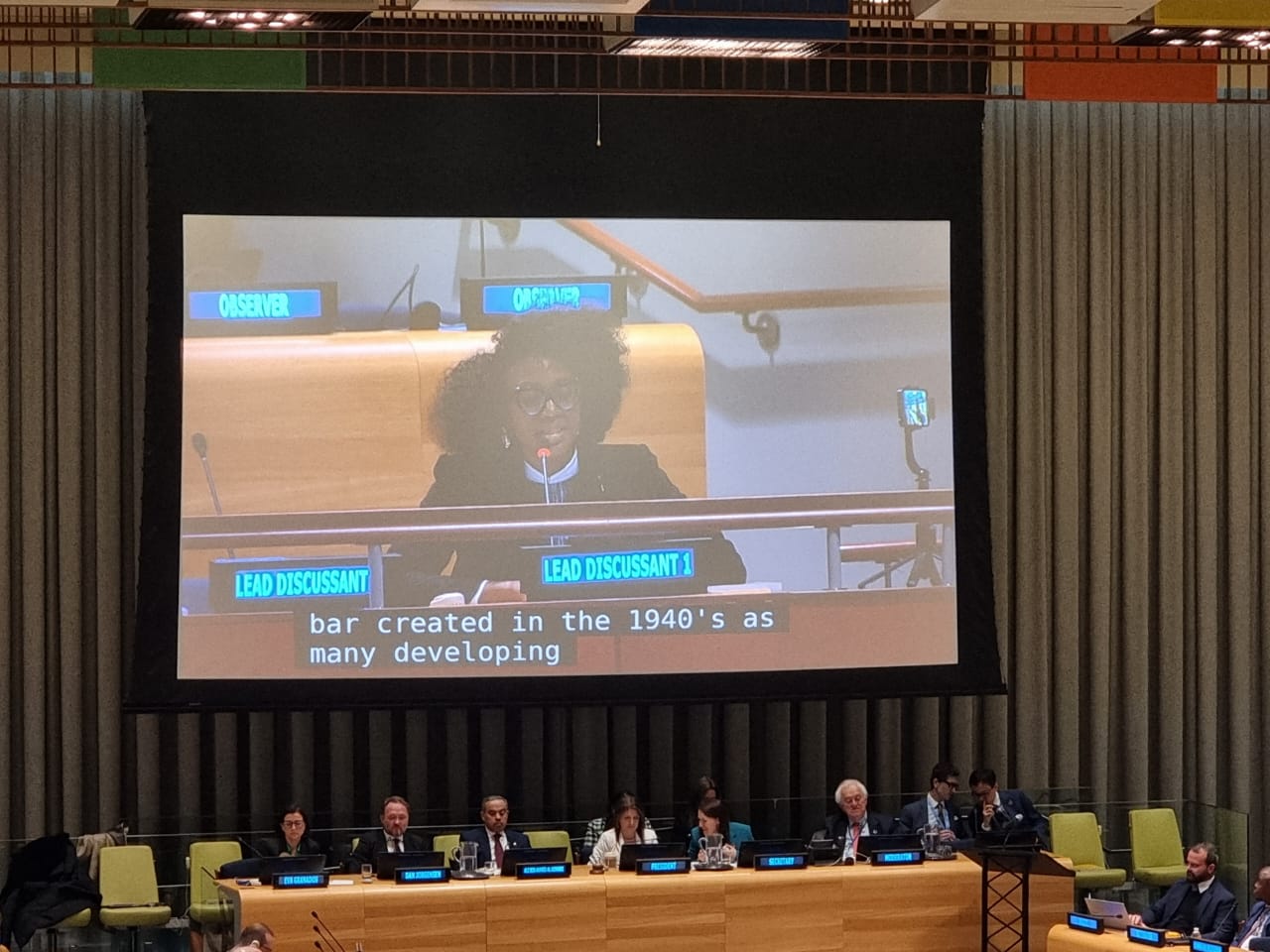Date

The Civil Society Financing for Development Mechanism has called on governments to ensure that international economic governance reforms remain at the centre of discussions on financing for development at the 4th International Conference on Financing for Development (FfD4). This was revealed during the Financing for Development event at the UN Economic and Social Council (ECOSOC) held from 22 to 25 April 2024 in New York.
Speaking on behalf of the Civil Society Financing for Development Mechanism TJNA’s Executive Director, Chenai Mukumba, highlighted that major multilateral institutions, including the Bretton Woods Institutions, were established in the 1940s just as many developing countries were starting to gain independence. Thus, most developing countries were absent from the decision-making tables where the rules and institutions governing the global financial architecture were made.
“In civil society, we like to say if you’re not at the table, you’re on the menu – and this was the case. As a result, the rules established to govern the financial architecture were subsequently developed in favour of the countries present. And we see this in the rules that govern the international debt architecture, the international trade regime, the global tax space,” she noted.
Ms. Chenai emphasised that it is important to retain the Fourth International Conference on Financing for Development (FfD4) platform as a space for decisions to democratise global economic governance and establish a framework to re-regulate the global economy.
She called on countries to reaffirm the Monterrey Consensus understanding of financing: structural and systemic reforms that strengthen developing countries' policy and fiscal space in advancing their structural transformation agendas. The focus needs to be placed on rectifying the existing structural inequalities and unfair division of labour.
“Our current reality is one of the net transfer of financial resources from developing countries to developed ones and a current global division of labour that traps many developing countries into commodity-dependent economies, with profound implications in terms of import-dependence and limited opportunities to attain the SDGs,” she noted.
She further noted the importance of ensuring that the process (of restructuring global financial architecture) is firmly driven by the Member States, not only in terms of outcome drafting but also in constructing preparatory dialogues. This would include:
-
Giving prominence to intergovernmental dialogue and negotiations
-
Avoiding organising expert-drive conferences and other similar preparatory sessions
-
And the Inter-Agency Task Force on Financing for Development (IATF) to be at the receiving end of Member States deliberations
She further underscored that the negotiations should strengthen the follow-up process of FfD in terms of:
-
Strengthening of the annual follow-up cycle that can build further beyond what is agreed at FfD4 rather than have FfD outcome as ceiling
-
Clear mandated processes that may depart from FfD4 onwards
-
Clear date for FfD5
-
Rethinking of the role of the IATF
She also called for guaranteed transparency and civic accountability of the negotiation process to ensure substantive opportunities for civil society to observe/track negotiations and engage with Member States in accordance with well-established FfD modalities.
The meeting brought together UN Member States, including officials from ministries of finance and national tax authorities, members of the UN Tax Committee, regional and international organisations, civil society, private sector, and academia. It sought to discuss financing challenges and identify gaps in policies and global frameworks that must be addressed to achieve the SDGs. This discussion will inform the Summit of the Future and feed into the preparation of the 4th International Conference on Financing for Development (FfD) in 2025.
Related resources